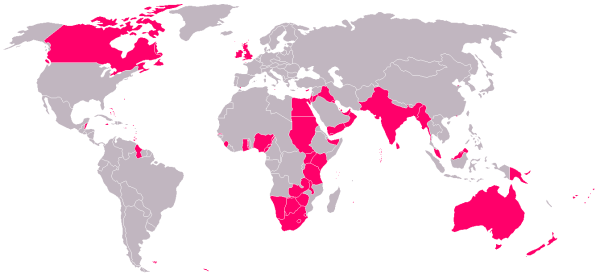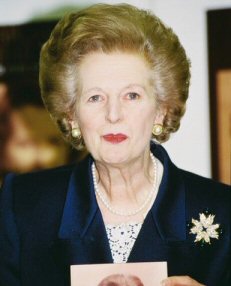|
|
The British Isles were cut off from the Continent by melting ice around 6000 BC. Most famous prehistoric monuments: stone circles in Stonehenge and Avebury, and the Uffington White horse
Celtic invasions from
|
|
|
Britain's written history begins with the Romans who occupied Britain for some 350 years. Legacy (What remained after the Roman colonization of Britain) :
§
Roads (no hard roads in
§
Christianity (many “Welsh” Celts became Christians)
§
Fortresses,
public buildings, villas and walls (
§
City sites (Many towns and cities were established by
the Romans:
|
![]()
|
Around the mid-5th century Angles and Saxons (Germanic people with a Germanic language) began to raid Britain. The legendary King Arthur led the British resistance to the Anglo-Saxon invasion in the early years of the 5th c.
7 Anglo-Saxon kingdoms
were established in
§
7th c.:
§
8th c.:
§
9th c.:
§
10th c.: |
|
Vikings from
§
842 Vikings raid
§
878 Alfred the
Great beats the Vikings:
§
Saxon-Viking power struggle
Danelaw:
N-Eastern
Viking kings ruled all
(An interesting fact: Europe was raided by 3 different peoples in the 9th century: the Vikings from the North, the Moors from the South and the Magyars from the East. The Vikings assimilated, the Moors were pushed out from the Iberian Penisula in the late 15th century, but the Magyars have kept their culture and language and are an independent country in the 21st century!) |
![]()
|
William the Conqueror
A page from |
An incredible fact: The Norman Conquest marks the last time that England was successfully invaded! (What a contrast with the history of the other European countries and nations!) § Norman Conquest: 1066-70 (The Normans were Norsemen, Vikings who had established a colony in Northern France. In fact, William the Conqueror was the grandson of one of the Viking chieftains who occupied Normandy.) § A country of ~1.5 million was overran by an army of 5000... § New aristocracy (“Change of regime”): 4000 Saxon landowners replaced by 200 Norman landlords!! ®
§
Feudalism introduced!
William
the Conqueror: owned all the lands of
The native Anglo-Saxons were forced into serfdom. § Norman-French law was introduced § French is spoken by the ruling class until the 13th century
§
1086 Doomsday Book: a record of all land + the owners + the
number of servants, animals, tools,
crop, income
® 1st
economic survey in (Gives us a faithful picture of early Norman England!)
|
|
Henry II
John 'the Lackland'
Edward I.
Henry VII. |
§
Ruled the first
§
Centralization of royal power
® Struggle between church and state (Who has ultimate control over the country: the pope
through the bishops or the king? Whose vassals are the bishops, should they
obey the pope or the king?) 1170
Thomas Becket is murdered in Canterbury Cathedral on the orders of Henry II, all
§
§
John
“the Lackland”:
Lost
§ Barons forced him to sign the Magna Carta (1215) ("Cornerstone of English liberties" - gave the nobles basic rights, protecting them from arbitrary taxation by the king.)
Edward I
(1272-1307)
§
Continued the conquest of § 1295 convened the 1st (Model) parliament (to impose new taxes…Each shire and town had to elect 2 representatives. The nobility + the merchants (the commoners) formed the 1st House of Commons. These commoners would have stayed away if they could have: they did not want to pay taxes.)
Hundred Years' War (1337-1453) (A series of wars between England and France fought in France with intervals of relative peace during 116 years) (French-Scottish Alliance against the English-Burgundian alliance)
§
· 1348 Black Death (pestis - 1/3 of the society is killed) ® not enough peasants ® situation of peasants improves · new taxes ® Peasant’s Revolt
·
End of the war: English Crown
lost all its possessions in § John Wycliffe translates the Bible into English in 1390! (Severe censorship laws issued against it.)
§
Chaucer writes the Canterbury Tales
Wars of the Roses (1455-85)
§
War between the royal Houses of § Only about ten per cent of the population was involved in the fights § Entire noble families die out ® their lands are inherited by the king then sold to the new merchant class ® creation of a new nobility of lesser gentry and merchants (powerbase of the Tudor House!)
§
Henry VII (Henry Tudor - from
|
|
End of the Medieval Period in |
Tudor
|
Henry VIII
|
§ End of serfdom, feudalism (men were no longer tied to the land)
§
Growth of the middle classes (power of towns increased through trade)
§
Printing press! (ends the Church's monopoly
on learning) § Higher classes start speaking English (instead of French) § Strengthening national identity § Military successes (against Scotland, Ireland, Spain, etc)
§ Henry is desperate for a son to ensure the throne! (The memory of the Wars of the Roses was all too recent…) He wants to divorce Catherine of Aragon (she is the aunt of the Spanish Emperor) and to marry a new wife to bear him a son. The pope refuses to allow the divorce. (Henry had 6 wives all together.) ® (movie: Anne of the Thousand Days) § Political break with the pope ®
§
Establishes the Anglican Church
® appoints himself as the head of the Church (Act of Supremacy approved
by Parliament in 1534) § Not real reformation! ® Henry continues to burn Protestants (However, a positive development is that an English translation of the Bible replaces the Latin Bibles in every church.)
§
§
Henry closed and sold the monasteries and church lands
® incredible wealth for the king
(e.g. financed his foreign policy)! (502 monasteries, 136
cloisters, 187 friaries = 825…) Affected every village in
§
Foreign policy:
·
Defeats the Scottish (but cannot
conquer
·
Direct rule of
· · Foundation of the Royal Navy
Elizabeth
I -
Golden
Age
§
A mild form of protestantism (little different from Catholicism)
spreads under Elizabeth. (Main differences from the Roman Catholic Church: Does
not acknowledge the pope, ministers are allowed to marry, images were
banned from churches, and only 2 sacraments: Holy Communion, Baptism)
§
Huge sheep farms + textile industry
®
factories; Textile
industry a very profitable business
® to increase pasture lands:
enclosures of common lands begin
® peasants are helpless (many become landless,
no longer self-sufficient, emigration, consumer society…)
® factories
§
Renaissance in arts: (Literature:
William Shakespeare (the Globe Theatre is built), Edmund Spenser, John Milton,
Christopher Marlowe, Sir Philip Sidney, etc.
§
§
Great trading companies are established
(East
India Company: tea, spices, cotton, etc, Levant Co. with the Turks, Africa Co:
slave trade, Eastland Co. with
§
|
|
James I
|
James I (1603 - 25) James Stuart, the king of Scotland, was a nephew of Elizabeth I. He inherited the English throne, becoming the joint ruler of Scotland, England, Ireland and Wales.
§
Personal
union with
§
Wants to rule by “Divine Right” § Survived several assasination attempts (e.g. Gunpowder Plot, 1605. Staged by Catholics who wanted to bring back Catholicism and do away with the Anglican Church. Failure of the attempt is celebrated every November 5th as Guy Fawkes Night or Bonfire Night.)
§
Strong
Puritan Revival in
§
Puritans flee to New colonies / territories:
Protestant settlements in Northern Ireland
Charles I (1625 - 49)
§
Ruled without convening the Parliament § Tries to force the Scots to submit to the Anglican Church ® war ® beaten by the Scots ® needs money from Parliament to pay the Scots in return for peace (11 years of absolute rule ends, king convenes parliament to raise money for the Scots)
§
§ 1642 Civil War: Royalists v. Parliamentarians ® The king fled North to gather an army to defeat the rebellious MPs. Royalists (Cavaliers) controlled the northwest, Parliamentarians (‘Roundheads’) controlled the southeast with the capital, and the navy. It is estimated that only about 10% of the population became involved in the fightings. |

|
Oliver Cromwell
Charles II
Queen Mary
Queen Anne |
1645 Royalist army is
defeated, King is captured 1649. Charles
is executed
®
Cromwell:
(1649 - 58) (the head of the
Parliamentarian Army)
§
Dissolves the House of Lords § Got rid of the Anglican Church ® Extreme Puritan rule (closed theatres, etc) through a military government
§
Invades
§
Invades New colonies / territories:
expansion
in
Restoration
®
Struggle
over Catholicism
Charles
II
(1660-85) (son
of Charles I, grew up in Catholic France)
§
Acts of Cromwell's government cancelled
§
Black Plague (70.000 dead in
§
1666
§
King wants to allow freedom of religion to Catholics
+ Puritans
®
§
Test Act (1673)
James II
§
A Catholic king!
® Annulled the
Test Act
®
§
Put Catholics in
the government § Tried to bring back Catholicism (beside the Anglican Church) ® fierce opposition in Parliament ® § Basis of the 2 party system: Tories: supported the Crown (and James II) + the Anglican Church (ancestor of the modern Conservative Party, often used as a synonym for the Conservatives today)
Whigs: afraid of an absolute
monarchy +
for religious freedom
(supported the deposition of James II and the invitation of Mary and William of
Orange in 1688; tolerant towards the
new Protestant religious groups, but not towards
Catholics ® also support the Test Act)
§
Parliament
decides to depose James II and invites
his Protestant daughter:
Mary + her husband William of Orange
from
William III and Mary II (joint monarchs) (1689-1702) § Glorious Revolution 1688: glorious because it was a bloodless coup d'état in England, and revolutionary because Parliament decided to make Mary and William rulers in the place of James II (who fled to Ireland to raise a Catholic army against his daughter and son-in-law). (By this act of Parliament its power was greatly increased leading to the Bill of Rights.) (In fact, the Glorious Revolution was not glorious since it was not bloodless: the two armies fought bloody battles in Ireland! It was only bloodless in England! But it was the English and Dutch armies fighting against the Irish and James. And it was definitely not a revolution, at best "revolutionary"...)
§
Parliament becomes the overall power in the state:
Bill of Rights (1689): made · The king cannot raise taxes or an army without the consent of Parliament
·
Catholics cannot vote
·
No Catholic can be king in
§
1690 (Battle of the Boyne) King William
defeats James's
army in
§ War of Spanish Succession (1701-14) King William entered the war with his English-Dutch armies against the French King Louis XIV (and his grandson) to make sure that they would not inherit the entire Spanish Empire (as the dying Spanish king had bequeathed it to the duc d'Anjou). The European Balance of Power was at stake! (King William sided with the Hapsburg Emperor and Hungarian King Leopold I who was also fighting to protect his dynastic claims to the Spanish throne. The Treaty of Utrecht 1713 gave the Austrians the Spanish dominions in Italy and the Netherlands, and the Spanish Empire to the duc d'Anjou under the condition that he could not inherit the French throne. Thus the danger of the unification of France and Spain was averted and the balance of power preserved. England was given Gibraltar and Minorca.)
Queen Anne (1702-14)
®
New colonies / territories:
|
![]()
|
George I
George III
John Wesley
Arthur Wellesley, 1st Duke of Wellington
Queen Victoria
|
George I (1714-27) § The Act of Settlement (1701) made sure that only Protestants could inherit the English throne. George I (the Duke of Hanover) was the closest Protestant relative of Queen Anne ® 1715. First Jacobite Uprising: wanted to put Queen Anne's brother, James (Jacob in Latin) on the throne, however he was excluded for being a Catholic. The rising - supported by the Scottish Highlanders and many Englishmen who disliked George I - failed, largely for a lack of strategy and organisation.
§
George I
did not speak
English and was hardly ever in England (spent most of his time in
§
Left governing to his ministers
George II (1727-60) § War of the Austrian Succession (1740-8): George II sent his English troops against France to support Maria Theresa's claim for the Austrian and Hungarian throne, but his real concern was to keep the enemies out of Hanover and to safeguard the European balance of power. (There was no considerable change of territory at the end of the war, only Silesia was ceded to Prussia.) § Jacobite Uprising (1745-6) called "The Forty-Five": led by the son of James Stuart, Bonnie Prince Charlie, the Stuart pretender to the English and Scottish throne was almost successful in ousting George II Prince Charlie invaded North England and was nearing London when his troops ran out of supplies and had to turn back to Scotland where they were beaten in the last battle ever fought on British soil (Culloden 1746)! § French and Indian War (also: Seven Years War 1756-63): fought between France and Britain over the posession of the fertile Ohio Valley in North America. Ended with France loosing virtually all her posessions in North America (Canada) to the British. Great Britain came out of the war as the most powerful colonial power in the world. (In Europe British troops supported Prussia against Austria, France and Russia. The British also fought the French with success in the Caribbean, the Philippines, Africa and India and won Florida from the Spanish!)
New colonies / territories:
George III (1760-1820) § Agricultural Revolution: Increasing mechanization (sowing machine, iron plough, threshing machine) of the farms ® increased efficiency: more food with the work of fewer peasants ® many became unemployed (could not sustain their families, their livelyhood is threatened) ® moved to towns offering employment in the new factories or to poorhouses/workhouses. Enclosures of common lands which villagers used to hold in common (and split the produce) were "privatised" or enclosed by rich people who could afford the machines to work large tracts of land or wanted to extend their highly profitable sheepfarms. Villagers often had no alternative but to emigrate or move to a town where menial jobs were plentiful. § Industrial Revolution: Masses of landless workers (Former villagers are no longer self-sufficient ® can’t make their own clothes, household goods, etc but need to buy it.) ® mass production needed and made possible by new inventions (steam engine, spinning machine,...) ® the peasants crowd into the industrial centres to work in the factories.
§ Colonization of India (after defeating the French in India in the Seven Years War) ® England becomes the richest country in the world
§
Slave trade from
§
American War of Independence 1775-83
( Lost colonies:
13
§ First British convict ships are sent to Australia (January 26th, 1788. Celebrated as a national holiday in Australia...), the colonization of Australia begins
New colonies / territories: India Burma
§ It is fascinating that neither the loss of the American colonies (1783) nor the French Revolution, or the large scale enclosures forcing the poor people off their lands could spark a revolution in Britain. Historians say that the evangelical revival spread by the Methodists among the new working classes, as well as the wealth pouring in from India were responsible for diverting people's attention from their miserable living conditions and safeguarding England from a revolution.
§
The evangelical revival was led by John Wesley
(an Anglican priest and profesor at Oxford) the founder of the
§ Humanitarian legislation (limiting child labour to 12 hours a day, children under 9 were forbidden to work in factories, 1807 Slave-trade was abolished)
§ French and Napoleonic Wars: (1793 - 1803 - 1815): Victory at Trafalgar (1805): The British under Admiral Nelson defeat Napoleon's combined French and Spanish fleet in a famous victory (averting the threat of Napoleon's planned invasion of Britain) In 1815 Napoleon's forces are beaten at Waterloo (a few kms from Brussels) by the Coaliton forces led by the Duke of Wellington. The outcome: France was no longer a dominant power in Europe, Britain came out as one of the most powerful nations in the world thanks to its industrial economy and Navy. (22 years of war between France and Britain were finally over.)
New colonies/ territories:
Mauritius
George IV (1811-20: Prince Regent, 1820-30: king)
§
§
§
1825 1st train § Catholic Emancipation Act: reverses the Test Act: (1829) Catholics can take public positions (first since 1673)
William IV (1830-7)
§
Reform Act (1832): Middle class
males receive the vote
(+ 41 towns got representation
for the first time) § Slavery (slave ownership) is abolished (1833) (slave trade was abolished in 1807)
Queen
§ Great industrial + colonial expansion: a period of imprtant social, economic, and technological change
§
§
§
Chartist movement: millions
of workers
signed charters demanding further reform of the electoral
process (vote for all adults - not just
middle class males, secret
vote, equal and fair electoral
districts, salary for poor MPs, etc)
®
mass demonstrations,
chartist leaders are arrested
§
Railway boom
®
§
Great Exhibition in
§
1st underground in the world (
Liberalism and humanitarian legislation:
§
Working class
lived and worked in awful, unhealthy conditions:
children age 5
and 6 were already made to work 12 to 16 hour a day in mines and factories
(PM
Peel: “ § Abolition of child and woman labour in mines § Sanitation reforms § Working class gets the vote (male householders in towns, 1867), farmers can vote (1884)
§
Free compulsory education
(1870) (up
to age 11)
§ Secret voting introduced (1872)
Imperial
ambitions (shameful wars):
§
Opium wars with
§
§
§
Crimean War
fought
against § Suez Canal (1875): PM Disraeli buys half of the Suez shares to secure Britain's waterway to India ® British occupation of Egypt in 1882.
§
Boer Wars (1899-1902)
® enormously extended
New colonies / territories:
India (incl. Pakistan, Myanmar, Bangladesh, 1857)
South Africa (1885)
Became a Dominion: Canada (1867)
Edward VII
(1901-10)
§
Became Dominions: Australia (1901) New Zealand (1907) South Africa (1910)
§
Balance of power begins to
collapse:
§
Triple Antant (1907) Britain + France +
(The House of Hanover was changed to
House of
§ The House of Lords is deprived of its veto power in financial decisions: only power to delay legislation for 3 parliamentary sessions! (1911) § Trade Unions grow in number and membership: many strikes (miners, dockers, railwaymen) ® § First Minimum Wage Act, insurance against sickness and unemployment (but no free health care until 1948)
§ World War I ® Allied Powers (Britain, France, Russia, USA) defeated the Central Powers (Germany, Austro-Hungary, Ottoman Empire) (the British army had 250,000 soldiers in 1914 and 5 million in 1918!) British casulties were almost 3 million, referred to as "the lost generation"!
§ The British Empire is the largest empire ever in world history
The Empire is bigger than ever in 1920: 25% of the world's surface and 1/3 of the world's population
§
Paris Peace Conference: US disapproves of colonialism
® § Positive developments: a strong sense of the country's obligation and responsibility to its citizens: social reforms · PM Lloyd George promises to build "a land fit for heroes to live in": Housing Act (1919) inner-city slums are taken down (not fully!) ® towns planned, affordable council housing (blocks of flats) for the poor · Women over 30 get the vote (1919) · Poor school children are given free meals and medical examination
§ Depression: economic crisis, very high unemployment, falling wages ® unsuccessful General Strike (1926) § BBC is founded (1922, British Broadcasting Corporation; regular TV service from 1936, suspended during WWII) § Rise of the Labour party (1924, 1st Labour government!)
New colonies/ territories (some former German colonies): Palestine (1920-48)
Became a Dominion: Irish Free State (1922)
§
1931 (Statute of Westminster) The
·
Trade: Special trade agreements and privileges (kept
·
Sports: Commonwealth Games every 4 years
(~Olympics
on a smaller scale) · Politics: Commonwealth Forces in World War II, today heads of government meat every 2 years
George VI (1936-52)
Appeasement of
World
War II: § British Empire was left alone fighting Germany after France is occupied by Hitler (May 1940 until 1941)
§
Germans bomb British cities in preparation for an
invasion (the Blitz/Battle of Britain: Aug 1940-41 May): millions of homeless,
but British war casualties are much fewer than in WWI
§
§ World War II undermined Britain's already weakened commercial and financial leadership ® it is too expensive to keep up the Empire
§
UN Charter (1945) calls for progress toward self-government
for the colonies – The
|
Dismantling of the British Empire begins in
1945 (Decolonization)![]()
|
Queen Elizabeth II
Margaret Thatcher
Tony Blair
|
Labour Government: (1945 - 51) § Rebuilding the economy and infrastructure from Marshall Aid from the USA (Out of the 15 countries that received the $12 billion Marshall Aid Britain received the most: $ 3300 million.) Immigrants were welcome from the Empire to help in the rebuilding § Welfare state established: National Health Service (free medical and hospital care for everyone regardless of their income) § Nationalization (Coal, Steel, Transportation) § Free secondary education for all
§
NATO (1949):
Lost colonies / territories:
I
Elizabeth
II (1952 - )
§
® Many countries begin to challenge Britain's authority
® Political debate in
§
1957
(Not wanting to surrender any control over her own affairs such as giving up preferential trade with the Commonwealth or Britain's overseas military bases ...Britain later regrets not having joined, and 10 years later applies for membership, only to be rejected by the French.)
§
1960 PM Macmillan after his
visit to Lost colonies / territories:
Suez Canal (1956
1960-66:
§
1945-66: 500
million people became self-governing
®
§
British pull-out
from her colonies happened peacefully (except
for
§
1967 § 1950s 250.000 black immigrants invited (!) from former colonies in the West Indies ® Race riots (Nottingham and Notting Hill) (® 1962 a quota scheme was introduced)
The Wilson Governments instituted a series of permissive measures, broadly reflecting the changing social climate at home. These include the 1967 Sexual Offences Act which decriminalised homosexual practices above the age of 18; the 1967 Abortion Act, which legalised abortion under certain conditions; and the 1969 Divorce Reform Act, which relaxed the conditions surrounding the termination of marriage.
§ 1960 - 70s severe economic problems § Liberal social legislation: (1967) Homosexuality and abortion are legalised (not in Northern Ireland), The Pill is introduced, Equal pay for women (1975)
§
1973 § Already in 1975 a referendum (actually the 1st referendum in British history!) was held by the new Labour Government whether to stay in the EC § Spiraling inflation + growing unemployment; deep cuts in public spending, major strikes ® Winter of Discontent (1978) § Elections 1979: won by the Conservative Margaret Thatcher
Lost colony:
The Thatcher Years (1979 - 1990) Conservative Government
§
New enterprise economy:
(state should not interfere in business) privatised many national industries § Reduced the power of trade unions by laws (Called the Iron Lady owing to her handling of the Miners' Strike in 1984)
§
Encouraged people not to rely on
the welfare state
(but pay for their
own health care, education, and pensions, and buy the council flat they were
living in)
§
Cut taxes (helping those already
wealthy)
§
Reduced inflation and government
spending
§
§ By 1985: 5 million recent immigrants
§ IRA bombing campaign demanding an end to British rule in Northern Ireland andthe reunification of Ireland § Anglo-Irish Agreement: (1985) gave the Irish Republic an advisory role in Northern Ireland's government and set out the conditions under which Northern Ireland could have devolved power again (NI Assembly reopened in Belfast)
Results of Thatcher's economic restructuring:
§
Split between the rich
Conservative south-east of
§
Decline of many British
industries: a loss of Britain's traditional industries § Very high unemployment
Tony Blair (1997-) Labour Government § (Tony Blair was born in Edinburgh Scotland to an English father and Irish Protestant mother. He has a Catholic wife and their 4 children were also baptised and raised Catholics. He spent his early childhood in Australia, upon moveing back to Britain he attended "the Eton of Scotland", Fettes College, then read law at St. John's College in Oxford.) § Blair became the leader of the Labour Party in July 1994, and the Prime Minister of the United Kingdom after winning the 1997 general election with a landslide (securing a majority of 179 MPs) ending 18 years of Conservative government. § 'New Labour': major reform of the Labour party! Instead of leftist economic policies of nationalisation New Labour supports the tenets of market economy. § Foreign policy:
·
· Number one ally of the USA in the War on Terror (2001) in Afghanistan then in Iraq § Domestic policy: · Priority: education (Spending on education was increased: number of teachers has been increased, primary school results have improved.) · Introduction of tuition fees for university (top-up fees up to £3,000, but grants promised to poorest students) (highly controversial!) · Increased spending on the National Health Service (NHS): (Hospital waiting lists are at their lowest since 1987 and the number of doctors and nurses has been increased)
·
· Anti-terrorism legislation enacted in Britain · Independence for the Bank of England to set the interest rate (the Government had been regularly manipulating interest rates before elections to improve statistics - not good for the economy) · Good Friday Agreement (1998): Blair achieved a breakthrough in the negotiations with the Northern Irish parties (that had begun under M. Thatcher and John Major, but had repeatedly broke down). Northern Ireland had her parliament devolved (1st since 1972) with a coalition government heading the executive composed of both Protestants and Catholics. (First Minister: David Trimble, representing the Protestant community and Deputy First-minister: Seamus Mallon for the Catholic Community) · 1997 : Referendum in Scotland and Wales (majority vote in favour of Devolution: self-government! Transfer of power over domestic affairs from London back to Edinburgh and Cardiff! · 1999 Establishment of the Welsh Assembly and the Scottish Parliament
§
Reform of the House of Lords: § Greater London Authority established (2000) (London was finally given her own local government again, after 14 years of no local authority in the capital! M. Thatcher had closed it down in 1986.) § Establishment of an independent New Supreme Court
Lost colony: Hong Kong (1997)
|
|

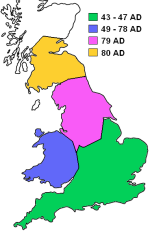
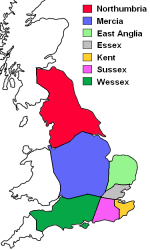
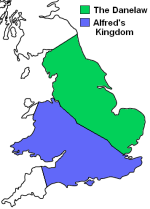
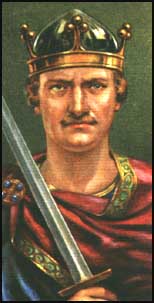


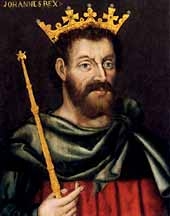

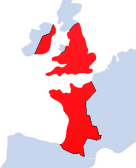


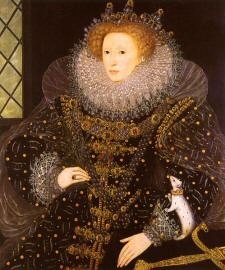
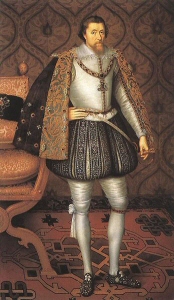
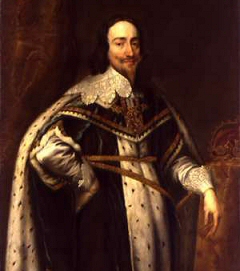

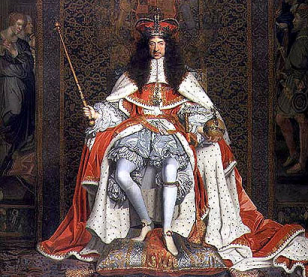


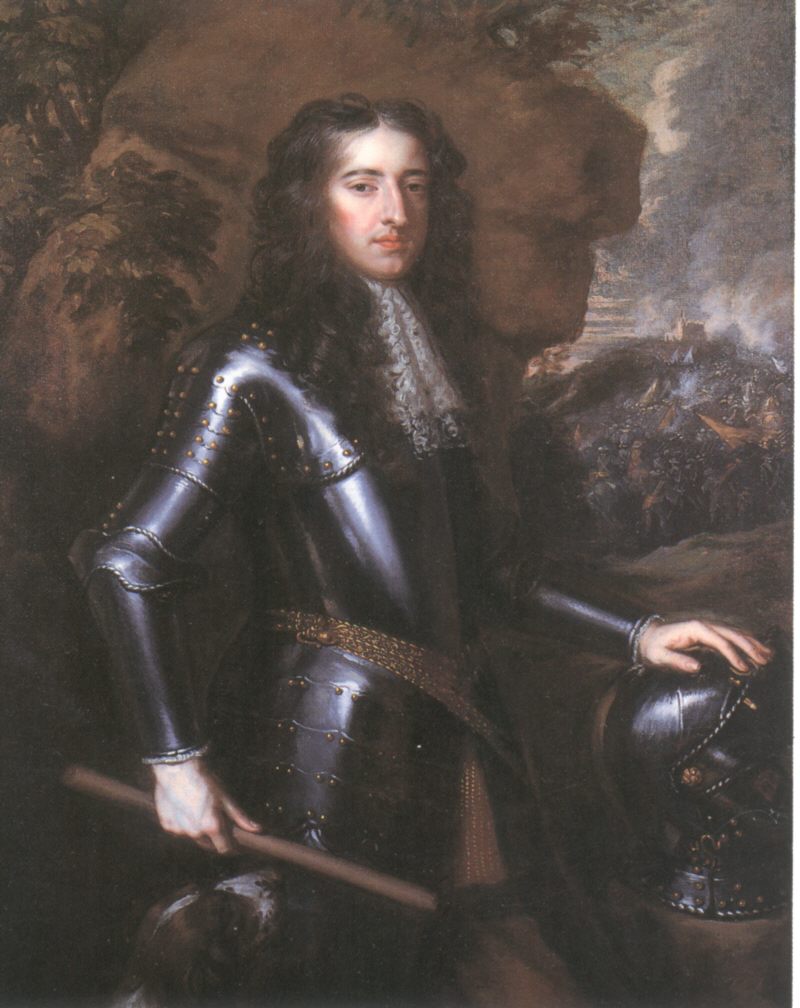
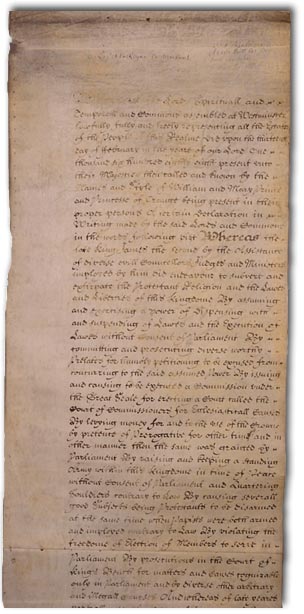
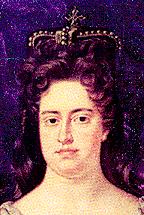
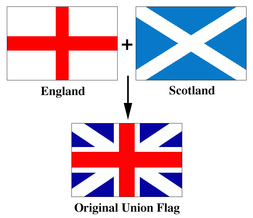 §
§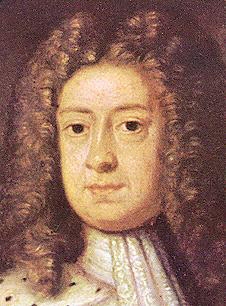



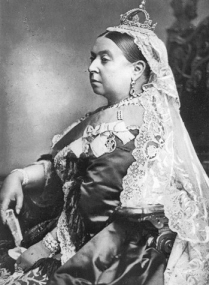
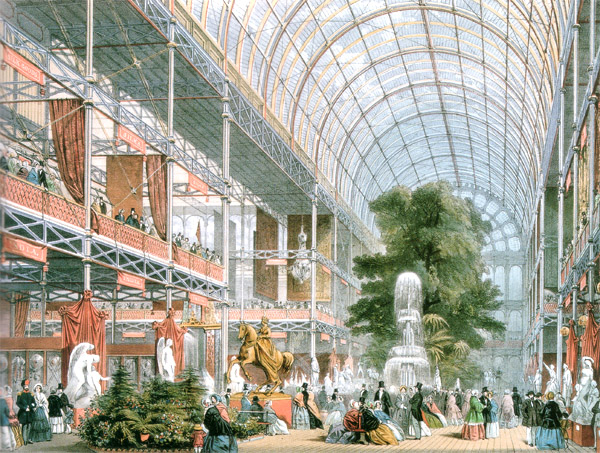
 §
§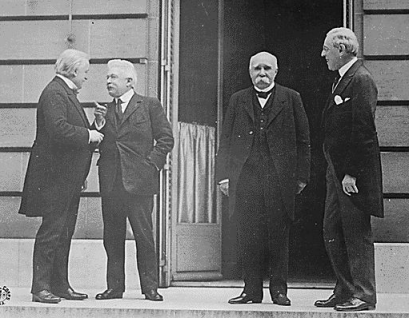 §
§